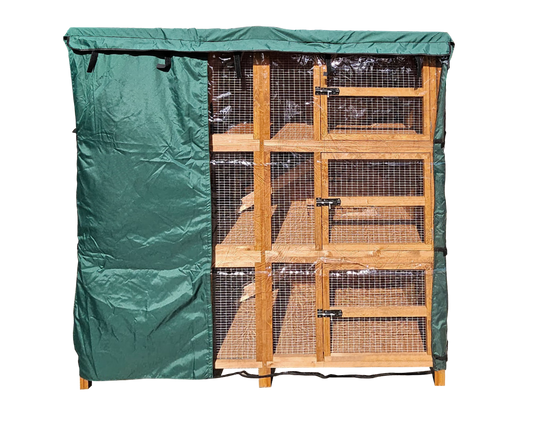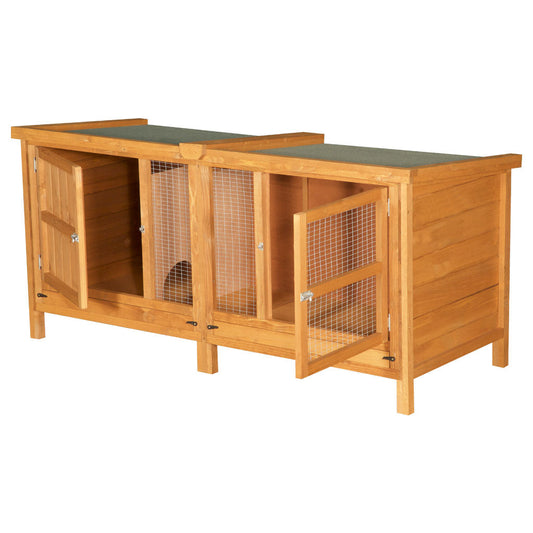The age at which a dog becomes a senior generally depends on their breed or type. As the life expectancy of giant dogs is so much shorter than tiny dogs, they will reach old age earlier. A Yorkshire Terrier for example is expected to live to around 13 years old compared to just seven for a Great Dane.
When dogs enter old age, they tend to slow down. Just like humans, they can begin to struggle with their mobility, failing senses, and age-related disease too. Fortunately, there are lots of things that owners can do to make life more comfortable for their golden oldies.
Food
The nutritional requirements of a dog change as they age. What a puppy needs in those early weeks of rapid growth and development is very different to the needs of an elderly dog who spends most of the day asleep. Complete senior dog diets were developed specially to cater for an older dog’s specific needs – some containing fewer calories to help with weight management and others including ingredients known to help mobility.
The life expectancy for dogs that are obese is drastically reduced, so keep an eye on their weight to help them live a longer life. Your vet will be able to advise you on the ideal weight for your individual dog, but as a general rule you should be able to see a visible waist on your dog when viewed from above, and you should be able to feel their ribs with light finger pressure.
Older dogs can often become fussy eaters so may need a little encouragement at mealtimes. If you are struggling to get your dog to eat, try the following:
- Instead of one or two big meals a day, offer smaller meals more frequently.
- Warm your dog’s food as this will enhance the taste and smell if their senses are diminishing.
- For dogs who are missing teeth or who might be suffering with dental issues, opt for something softer or soak their usual kibble in water first.
- It is common for elderly dogs to become stiff, and some bigger dogs can find it uncomfortable bending down to eat and drink from floor-level bowls. You can buy raised feeders to help with this.
- Elderly dogs usually prefer to take their time with food and can become grumpy if interrupted. Ensure you feed your old dog in a nice quiet spot and don’t disturb them while they are eating.
Mobility
Arthritis is a common condition in older dogs and the best thing you can do for your dog is to ensure they remain a healthy weight. Any added pressure on a dog’s joints will add to their discomfort.
Navigating the home can prove tricky for older dogs with mobility issues. Slippery floors can be hazardous so consider using mats in areas where they are likely to slip. If your dog is used to lounging on the sofa but starting to find it difficult to jump up, you could use a pet ramp or steps to help. The same goes for your car if your dog can no longer jump into the back. A small dog might be easy for an owner to lift, but a medium to large dog certainly won’t be!
An elderly dog might benefit from a change of dog bed if they don’t seem as comfortable as they did or are finding it increasingly difficult to get out of it. Orthopaedic and memory foam beds, which support ageing joints, are available for dogs.
There are supplements that dogs can take which some owners have found to help improve mobility in old age. They tend to include ingredients such as glucosamine and chondroitin, omega-3, and green lipped mussel - which are rich in glucosamine and amino acids.
Exercise
Elderly dogs still need physical and mental exercise to keep them in the best of health, but they are unlikely to be able to manage the miles they walked in their youth or the hours they used to spend playing fetch.
The best way to approach exercise with an older dog is little and often, as too much at once is likely to make them sore the next day. It’s not just about running and catching – a very important part of a dog’s daily walks is the sniffing opportunities. This is how they find out all the local news! Even if your dog can’t walk very far, a potter around with their nose to the ground will enrich their life to no end.
For a change of scenery, you could take your dog out in the car somewhere new – to smell the sea air, watch the birds or roll around on some unfamiliar grass.
Let your dog guide you when it comes to exercise and don’t force them to go out if they’d really rather not.
Doggy Dementia
As the brain ages, dogs can suffer from cognitive dysfunction – very similar to dementia in humans. Signs that your dog could be suffering from cognitive dysfunction include confusion, being restless at night, pacing, barking more, staring into space, forgetting training, toileting in the house, and changes of personality. Unfortunately, there is no known cure or way to prevent the onset of doggie dementia but there are things you can do to make your dog happier and more settled.
- Avoid sudden changes in the home that could disorientate your dog, such as rearranging furniture.
- Set up a cosy den or safe space for your dog where they know they can go and rest without being interrupted.
- Try to stick to your normal routines as much as possible.
- Keep walks to familiar places and do not let your dog off lead in case they become confused and lost.
- Dogs with cognitive dysfunction can become clingier to their owners if they start to find the world around them scary and unfamiliar. Be patient and understanding with them and try not to leave them on their own if possible.
When to See Your Vet
It is a survival instinct for dogs to hide pain, which is why you may not realise straight away that your old dog is suffering. It is a good idea to take an elderly dog for regular check-ups at the vet so that any issues can be spotted early.
If you notice changes to your pet’s appetite, water intake or sleeping patterns, or think they have lost weight or are behaving out of character, it could be a sign that they are unwell so seek veterinary advice as soon as possible.
Shop All Dog
If you enjoyed this article, have a look at:
How To Help Your Dog Live Longer









